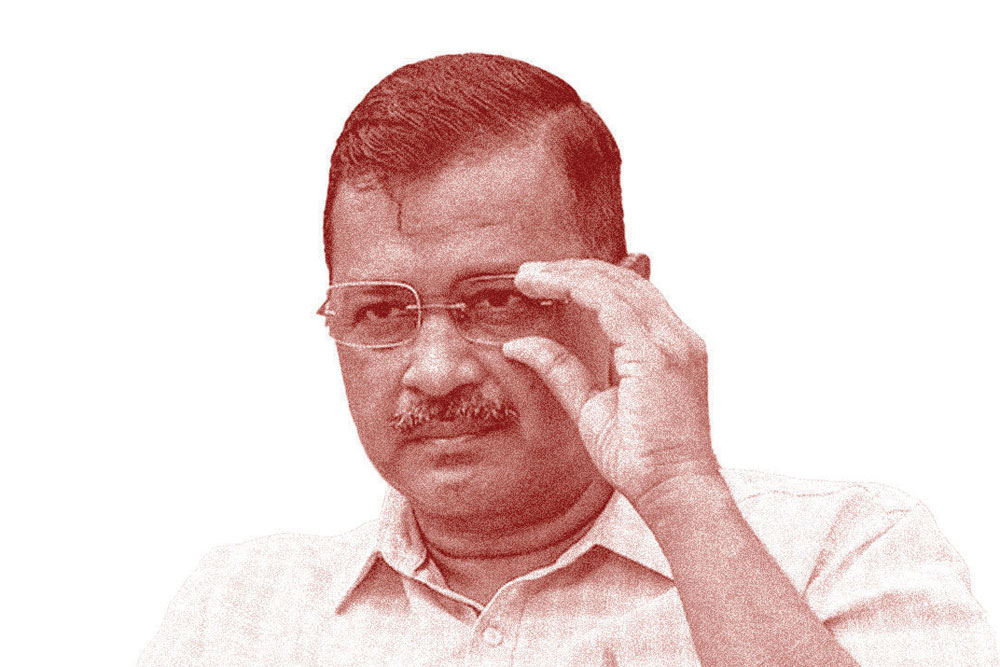Whenever I feel nervous, I interact with the youngsters. They don’t carry the baggage of the past, says Mithali Raj
Mithali Raj in conversation with Boria Majumdar
 Boria Majumdar
Boria Majumdar
 Boria Majumdar
Boria Majumdar
 |
04 Feb, 2022
|
04 Feb, 2022
/wp-content/uploads/2022/02/MithaliRaj1.jpg)
Mithali Raj (Photo: Getty Images)
She will be playing her last international tournament for India and will be eyeing the last missing piece of silverware in her repertoire. After 22 long years, a World Cup title is the only thing Mithali Raj longs for and it was more than evident when Boria Majumdar caught up with her over Zoom the day she left for New Zealand for Mission World Cup. In a conversation that lasted over an hour, the captain of India’s women’s cricket team opened up on her cup dreams, her team, strike rate and the criticism that comes with it, playing Pakistan, and a lot more. Excerpts:
Mithali, it’s the last time you are leading India onto the greatest stage of all. Thoughts about the World Cup?
Well, honestly, if I think about the World Cup, there is a bit of nervousness about how things will go for India, more so because it is going to be my last World Cup. But then, I have always believed in preparation, so if I am preparing well and preparing right, I take that confidence into the World Cup. And I have done all I can to prepare well. The sort of team that we have been building in the last two-three years for this World Cup and the way this team has been shaping up in the last two-three series, I feel reasonably confident that we will do well in New Zealand. What is important is that the team is doing well as a unit and it’s just a matter of gelling and performing on that particular day. That’s what we will have to do starting March 5th.
Tell me about the format: Is this a good format that you play all eight teams and then the semi-finals and the final, so that it’s not about one bad day anymore and it gives everyone a chance? Even if you have one bad day you can regroup.
I would prefer this, playing a league and then playing a knockout because you still get another chance, if you have a bad game, to come back. I still remember the 2013 World Cup. It was played in the Super Six format where we lost to England and then the game against Sri Lanka became a virtual knockout for us. We went on to lose that and were out of the Super Six being the host team in the World Cup. That was a disappointing tournament, largely because of the format obviously. It is always better to play a league because you can always make up even if you have a low net run rate. You can calibrate better and you can catch up with the teams later on in the tournament.
This World Cup, everyone will be looking at you. Does that pressure impact you?
Sometimes it does play on my mind, but as athletes that is how we are conditioned. It is important to focus on the current situation and how you counter that. I have figured out a way: whenever I feel nervous, I try and interact with the youngsters for they give off a very different energy. So it’s nice to be around youngsters who don’t carry the same amount of pressure that an experienced player carries into the World Cup.
Tell me more about this: Did you evolve this yourself or did it just happen?
There were times when I looked up to the team for confidence because as a captain there are games when you feel that pressure, that it is a do-or-die situation and you alone have to give confidence to the team. But there were a couple of situations where I looked up to the team and found seasoned players like Jhulan (Goswami) also under the same pressure. But then there are youngsters who don’t care about all this because they are young and don’t carry the baggage of the past. It is actually quiet refreshing. I remember this one instance in the Women’s Challenger in Dubai. Shafali (Verma) was in my team. In the second game, I asked her if she wanted to bat or to field, and she said: “Kuch bhi hoga didi dekha jayega”, “kuch bhi ho hum confidently jayenge”. So, as a captain when you think you are not able to make a decision whether you want to bat or bowl, and you ask a youngster and she gives an answer like that then it eases some of the pressure and you also feel let’s go out on the field and see what’s in store for us.
Let’s talk about the Mil-Jhul partnership. Twenty years together isn’t easy!
I have always looked up to Jhulan for inspiration in difficult times. When you have her in the side and see her take that extra time out to bowl a single wicket, that motivates me, that I should find time out for the fundamentals as well. On tours it’s always helpful to have a personality like her. There are times when I ask her opinion on how we should approach a match and her opinion is obviously important because she has played for more than two decades with me. She has also led the team and a different perspective is always helpful.
How pleased were you with Jhulan contributing with the bat?
I told her that she had finally come back to batting! I still remember when she was playing for Bengal. Bengal were able to defeat Railways because of her knock. As batters it is our responsibility to score runs but the lower order contributing can help us win more matches. Also, as an experienced player, if she starts contributing seriously then it will also inspire the young pacers to contribute.
We have been able to give adequate opportunities to youngsters. In 2016, Smriti and Deepti were very young and they gained a lot of experience in the 2017 World Cup. I can say now that we do have a seasoned team. That’s what makes our 50-over team a formidable unit, says Mithali Raj
Are you happy with the way the young pacers have come through the ranks in the last year?
Meghna (Singh) has done well. Pooja (Vastrakar) had made her debut two-three years ago but the more matches they play, the more exposure they get. And with Jhulan at mid-on/ mid-off guiding them, it helps them understand the game better and it has also helped us gel well as both a batting and a bowling unit.
Indian players played The Hundred and WBBL (Women’s Big Bash League) last year and performed well. Does it help in the team’s preparation as they have played in different conditions?
It helps the individual for sure. The good part was that almost seven to eight players played in the WBBL this time and young players like Richa Ghosh also got the chance to play and any game time before an event like the World Cup is good. Although for experienced players like Harman (Kaur) and Smriti (Mandhana) it will be easy to switch from one format to another, for young players like Richa it will take some time. Having said that, sharing the dressing room with experienced players of other countries and listening to their ideas and opinions would have helped her prepare for the World Cup.
Sachin said he waited 22 years. Mithali has also waited 22 years. Something will happen. Your thoughts?
Fingers crossed (laughs). I hope so—that this will be THE WORLD CUP for the women’s cricket team. This is the best opportunity for sure. We have also got good practice thanks to the Board of Control for Cricket in India (BCCI). We played South Africa at home, we played England in England, Australia in Australia, and to play these teams on their home soil is tough in itself. Yes, the results weren’t what they should have been but the girls now know what is expected of them in their roles and that will help us going forward in this tournament.
Is 50-over the most settled format for India?
Over time we have been able to give adequate opportunities to youngsters, like in 2016 Smriti and Deepti (Sharma) were very young and they gained a lot of experience in the 2017 World Cup and then after that they have had a lot of exposure thanks to the different leagues they have been to. Since then we have given opportunities to youngsters and now I can say we do have a seasoned team. That’s what makes our 50-over team a formidable unit.
Have you been able to forget the final loss of 2017 or does it still haunt you in your sleep?
It took time for me to swallow the defeat but I don’t want to look back now. This is a fresh World Cup and with a fresh World Cup comes fresh challenges and I do believe that we, as a team, stand a very good chance in this World Cup.
How did you as a batter prepare for this World Cup?
Usually, what most of the athletes do at the beginning of their career and in the middle phase is that they concentrate on their physical and skill preparation. Rarely do we concentrate on our mental preparation. That is something I have started to do in the last one year because I know that I cannot be playing forever. And if not now, when? I want to tick every box when I prepare. I don’t have to limit my practice to only batting, fielding and physical training but also focus on my tactics, strategies and what kind of plans I want to work on. In practice, sometimes I put myself in tough situations, such as, say, we have lost six wickets and I still have a tail to bat with. That is how I prepare. Because preparation is something that’s in our control. I don’t know what will be the scenario in the World Cup but the best way is to prepare myself for every situation.
Do you speak to the girls about such situations? Do you tell yourself that if the first two wickets are down quickly then maybe you have to bat through the innings and the team has to reach 240-250?
We have seen a couple of games in England and in Australia where we had an early wicket and there was a game in which even I did not score runs and the likes of Yastika Bhatia and Pooja Vastrakar contributed and, of course, Jhulan got crucial runs quickly towards the end. At the team meetings, we revisit these matches for the girls to feel motivated and make them understand their own role and the importance of their wicket.
We can practise for every situation but the girls have to maintain that confidence in the game and believe that as a team we can still rally around and pull the game through (even after two-three wickets have gone down early). It’s not just the top order but every girl who gets the opportunity has to contribute to the team’s victory.
Women who are successful in sport are beacons of inspiration to women in general because sport is a level playing field where the cricket ball doesn’t see whether it’s a male cricketer or a female cricketer. It’s important as a woman if you are able to inspire women from different fields, not necessarily sport, says Mithali Raj
When I look back, what you have done is make women’s cricket in India a serious profession, a viable profession for young girls to look up to. That’s your legacy. You have made this sport a profession. Have you ever thought about it?
I haven’t given it that much thought but I truly believe—and I have said this in a couple of other interviews—that women who are successful in sport are beacons of inspiration and hope to women in general because sport is a level playing field where the cricket ball doesn’t see whether it’s a male cricketer or a female cricketer; it just travels at the speed at which it is thrown. It’s important as a woman if you are able to inspire other women from different fields, not necessarily sport. I think that probably would be something I would be very happy to do and to see young girls take up sport really gives me a lot of joy. From where I have started in the 1990s, not knowing about women’s cricket to a point where today the young girls, and just not young girls but boys too, look up to women cricketers as role models—that is a major distance travelled.
Do you think a good World Cup can push BCCI to go ahead with the WIPL?
Not just the World Cup but overall the girls are playing in leagues everywhere and most of them are getting the exposure and we have a good pool of players now. In the Challenger Trophy recently, we witnessed a very good standard of cricket with four teams. So, I think if we do really well in the World Cup, it definitely would play a huge role but otherwise also I think it’s a good time because it’s important to build a team for future tournaments. You are going to build a good team by giving them exposure in the domestic circuit, India A teams, India Emerging teams, and the U19 World Cup is there in 2023. WIPL will give a good platform to unearth talent and also to groom them.
Have you thought about the future? Mithali Raj as coach, mentor, or BCCI administrator? Have you thought about it or will you give it some thought after the World Cup?
I will keep that open for now. There could be many avenues for me after the World Cup, but right now it’s the World Cup.
In England in 2021, after the first two matches, fans wanted you thrown out of the team but come the third match, and you are the greatest batter of all time! Any thoughts on such fickleness?
If you are passionate about the Indian team, clearly their emotions do flow when we lose one odd game. But again, for the players, we know that we have got to be patient. So do the fans because whether they do well or not, it is the Indian team. We represent the country. So, we are the ambassadors and we would definitely want to put our best game forward. It’s a sport at the end of the day; you win some and you lose some. I would only wish that fans be a little more patient if we happened to have a small hiccup in the tournament.
Thoughts on the India-Pakistan match? Any particular team you have in mind for which you need to prepare specially?
At a World Cup, you prepare for every team and I would prefer to beat a team when they are at their best because then we are playing our best game. So, whether it’s Pakistan, England or New Zealand, it doesn’t matter. India have to win every game they play in the World Cup. If you keep asking me about India-Pakistan, clearly you are building the pressure now (laughs). No matter how many times we tell ourselves it’s just another game, the build-up around that match and that day is always there from fans, from the media. But as players we look at the game as the start of the World Cup and we would like to start the World Cup on a winning note.

/wp-content/uploads/2025/01/Cover_Kumbh.jpg)












More Columns
The lament of a blue-suited social media platform Chindu Sreedharan
Pixxel launches India’s first private commercial satellite constellation V Shoba
What does the launch of a new political party with radical background mean for Punjab? Rahul Pandita